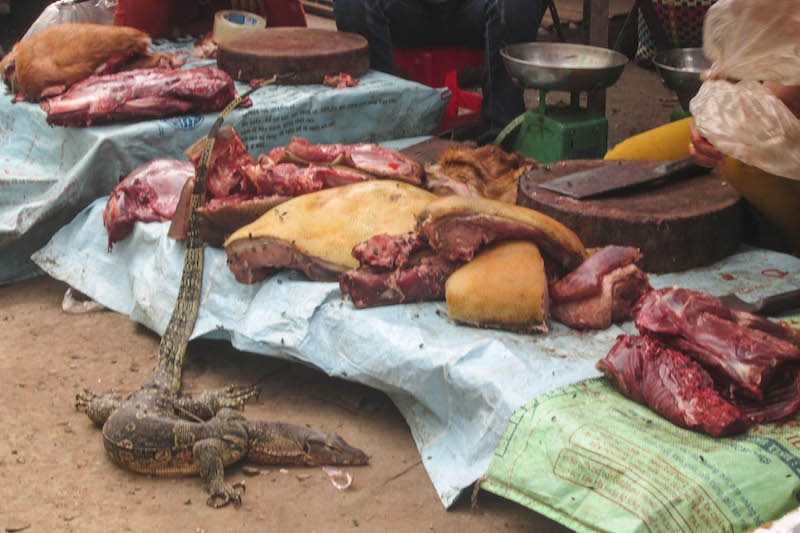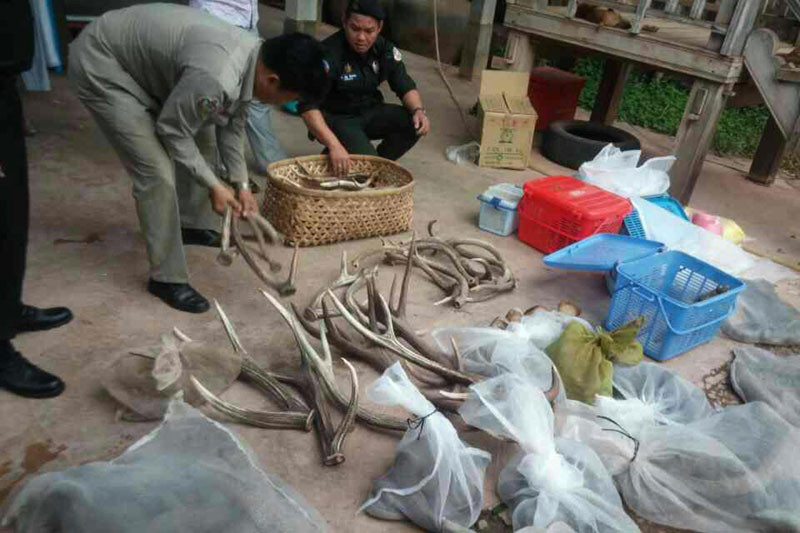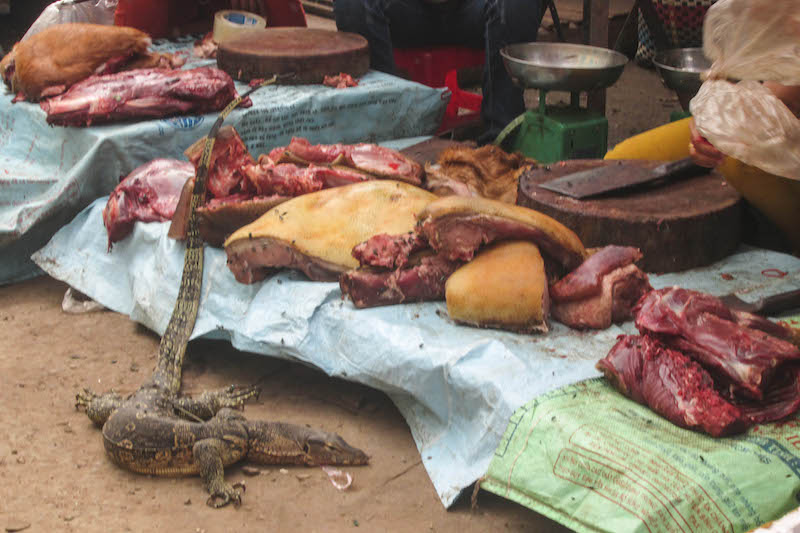Cambodia—and the rest of Southeast Asia—is facing an “extinction crisis” driven by the large-scale use of cheap snares in commercial hunting, according to an article published last week in the journal Science.
The specter of “empty forests” was looming for Cambodia and in “most forests in Vietnam—there’s nothing left bigger than a rat,” said Thomas Gray, the paper’s lead author and director of science for Wildlife Alliance, an NGO that works to conserve forests and wildlife in Cambodia’s Cardamom mountains.

The main killers of wildlife in Cambodia’s forests are homemade snares, and the Cardamoms and the dry deciduous forests of Mondolkiri province are hotspots for such trapping, Mr. Gray said.
“In the Southern Cardamom National Park…the number of snares removed by law enforcement patrols increased from 14,364 in 2010 to 27,714 in 2015,” the article says.
Snares are often fashioned out of cheap materials such as bicycle-brake cables, and an individual hunter, often from a local community, could place 500 in a day, Mr. Gray said.
The snares kill indiscriminately, trapping endangered animals like elephants along with species like wild pig prized for their meat and wild dogs, according to the paper.
“If you gave everyone living around a protected area a gun, it would be less destructive,” Mr. Gray said.
Wildlife Alliance found a trader in Mondolkiri who had been selling a ton of wild-caught meat across Cambodia’s border every day, he said.
The level of snaring to feed such a demand is extremely difficult to combat, Mr. Gray said, especially as rangers rarely catch poachers in the act.

“The main conservation effort is picking up and removing snares. If you remove 10,000 snares in one year, though, you’ll come back next year and there will be 12,000 snares.”
The solution, which was drafted into Cambodia’s pending Environmental Code, is stricter penalties, including prison terms for those who bring snaring materials into protected forests.
Sao Sopheap, a spokesman for the Environment Ministry, said the ministry wasn’t certain on the total number of snares removed from Cambodia’s forests, but acknowledged they were still a significant problem for Cambodia’s wildlife, even with the ministry’s expanded ranger force of 1,260.
“A greater number of rangers are needed,” he said.




